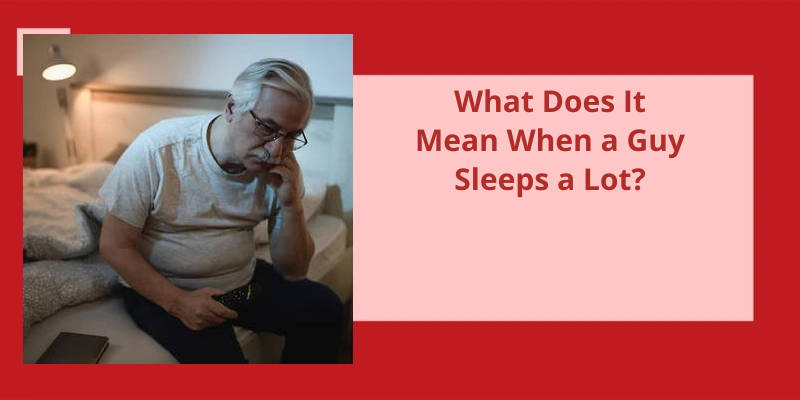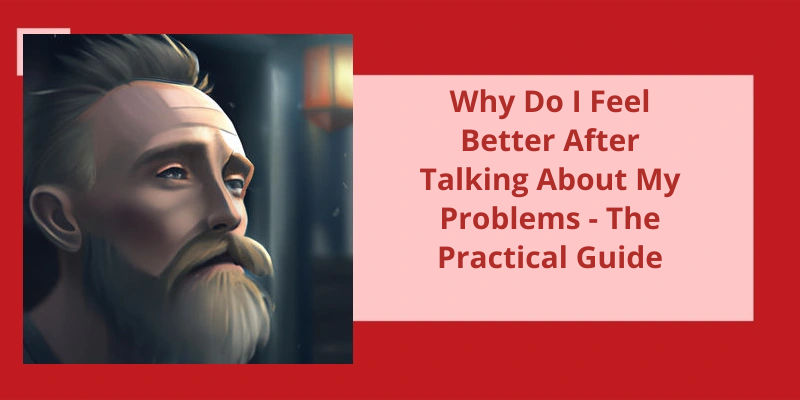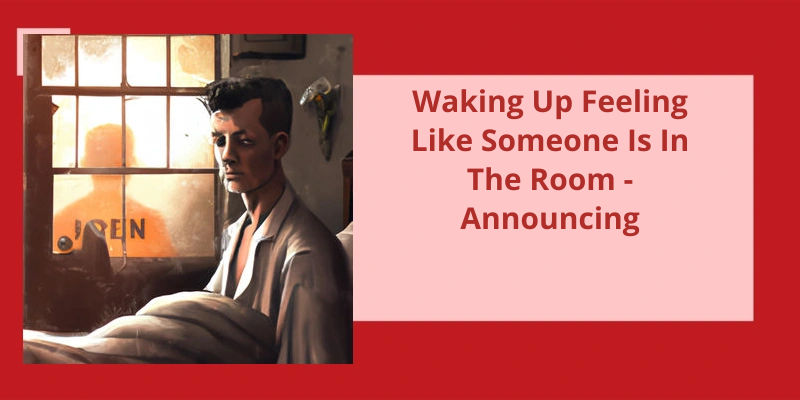Sleeping is a biological necessity that allows our bodies to recharge and rejuvenate. However, when an individual starts to sleep excessively, it raises questions about their overall well-being and could indicate an underlying health issue. So, what does it mean when a guy sleeps a lot? This question might be a cause for concern as oversleeping has been linked to several health conditions. According to experts, an extended duration of sleep could be an indicator of an underlying illness, such as heart failure, anemia, hypothyroidism, or obstructive sleep apnea. These conditions often go undetected and can lead to serious health complications if left untreated. Consequently, understanding the significance of excessive sleep in men is crucial for identifying potential health problems and seeking appropriate medical attention when necessary.
Why Do Guys Like to Sleep So Much?
It isn’t uncommon to notice that some men tend to sleep more than others. Many factors can contribute to this phenomenon. One possible explanation is low testosterone levels. Testosterone plays a crucial role in regulating sleep patterns, and when levels are low, it can lead to excessive sleepiness. This could be due to various reasons, such as aging or underlying health conditions.
Depression affects sleep by causing disruptions in the normal sleep-wake cycle. Men who experience depression may find themselves sleeping longer hours as a means of escape or to cope with their emotional state.
Medical conditions like sleep apnea can also lead to increased sleep duration in men. Sleep apnea is a condition characterized by pauses in breathing during sleep, leading to frequent awakenings throughout the night. This disrupted sleep can leave individuals feeling tired and needing to sleep longer during the day.
The importance of good sleep hygiene can’t be overstated. Practicing healthy sleep habits can greatly improve sleep quality and reduce the need for excessive sleep. Maintaining a consistent sleep schedule, creating a peaceful sleep environment, and avoiding stimulating activities before bed can all contribute to better rest.
By implementing good sleep hygiene practices, men can strive for better sleep quality and overall well-being.
It isn’t uncommon for individuals to experience bouts of excessive sleep, but when it becomes a regular occurrence, it may be cause for concern. If your boyfriend is sleeping for extended periods, ranging from 12 to 18 hours a day, it could indicate an underlying issue, such as depression or narcolepsy. It’s crucial for him to address this issue by seeking professional assistance from a sleep specialist. Consulting a doctor can help determine if there are any underlying medical conditions contributing to his excessive sleep or if it’s related to psychological factors.
Why Is My Boyfriend Sleep So Much?
It can be concerning if your boyfriend is sleeping excessively, ranging from 12 to 18 hours a day. This behavior could be indicative of an underlying issue such as depression or narcolepsy. Excessive sleep could serve as a symptom of a larger problem or even as a means of avoiding the problem altogether.
Depression is a common condition that can significantly impact sleep patterns. If your boyfriend is consistently sleeping for extended periods and displaying other signs of depression, it would be advisable for him to seek professional help. A doctor or mental health specialist may be able to provide a diagnosis and recommend appropriate treatment options.
Another possibility is narcolepsy, a neurological sleep disorder characterized by excessive daytime sleepiness and uncontrollable sleep attacks. Narcolepsy can significantly disrupt a persons daily life and lead to excessive sleep duration.
In any case, it would be prudent for your boyfriend to schedule an appointment with a healthcare professional to discuss his sleep patterns. They’ll be able to evaluate his overall health and potential underlying causes for his excessive sleep. It’s essential not to jump to conclusions without a proper medical evaluation, as multiple factors can contribute to abnormal sleep patterns.
Other Potential Causes of Excessive Sleep in Men
There are several potential causes for excessive sleep in men. One of the most common causes is sleep deprivation or poor sleep quality, which can be a result of various factors such as stress, sleep disorders, or lifestyle choices. Additionally, certain medical conditions like sleep apnea, narcolepsy, or depression can also lead to increased sleep needs. Hormonal imbalances, such as low testosterone levels, may contribute to excessive sleep as well. It’s important to consider these factors and consult a healthcare professional for proper diagnosis and guidance.
Source: My boyfriend has started sleeping all the time and it’s causing …
When a man finds himself sleeping a lot around you, it may not be a sign of boredom or disinterest. In fact, it could be quite the opposite. Scientifically speaking, when someone is in the presence of a person they deeply care about, their body releases hormones that induce feelings of relaxation and contentment. These hormone surges, in turn, can make one feel surprisingly sleepy. So, if your man dozes off around you more often than usual, it could be a heartfelt indication that he truly loves and feels safe with you.
What Does It Mean When a Man Sleeps a Lot Around You?
When a man sleeps a lot around you, it doesn’t necessarily mean that hes bored with you. In fact, it could actually be a sign that he really likes you and feels safe with you. There may be a deeper reason behind his frequent slumber in your presence. It’s important to understand that when you’re near someone you love, your body releases certain hormones that can make you feel tired. It’s a natural response to being in a comfortable and intimate setting with someone who truly matters to you.
If your man feels sleepy next to you, it could be an indication that he’s strong feelings for you. Being in your presence may bring him a sense of calm and contentment, which can lead to a deep relaxation and even drowsiness. It’s a beautiful expression of the trust and affection he’s for you.
While it can be easy to misinterpret his frequent sleepiness as disinterest or boredom, it’s important to consider the physiological factors at play. These feelings of fatigue are a result of the release of hormones like oxytocin, also known as the “love hormone,” which promotes bonding and relaxation. So, instead of assuming the worst, try understanding his feelings from a place of empathy and recognition of the love he feels for you.
In addition to the hormonal aspect, another reason for his excessive sleepiness could be the comfort and sense of security that being with you brings. Feeling safe and at ease in someones presence can lead to a deep sense of relaxation, causing him to doze off more easily. It’s a testament to the level of trust and comfort he feels when hes around you.
So, instead of interpreting his sleepiness as a negative sign, try seeing it as a positive one. It’s likely that his frequent bouts of sleep are a reflection of the love and connection he shares with you. Embrace the fact that you’ve created a safe and tranquil environment for him, where he can truly be himself and find solace in your presence.
This hormonal reaction can cause both you and your partner to feel sleepy, as it’s a natural way for the body to relax and unwind in the presence of someone you care for deeply. So, if your boyfriend feels sleepy when he’s around you, it’s likely a result of this chemical bonding that happens when two people are in love and close to each other physically.
Why Does My Boyfriend Feel Sleepy When He’s Around Me?
This chemical bonding can lead to a feeling of deep relaxation and contentment, which in turn can make you feel sleepy. Your boyfriends increased sleepiness may simply be a natural response to the chemicals released during intimate moments.
Additionally, physical touch and closeness can have a calming and soothing effect on the bodys nervous system. When you’re close to someone you care about, your body may enter a state of relaxation and reduce levels of stress hormones such as cortisol. This decrease in stress can promote better sleep quality and quantity.
It’s important to note that individual sleep patterns and needs can vary greatly. Some people naturally require more sleep than others, and certain factors such as age, overall health, and daily activities can influence how much sleep a person needs.
However, if his excessive sleepiness becomes a concern, it’s advisable to consult a healthcare professional to rule out any underlying medical conditions.
The Relationship Between Sleep Patterns and Overall Health
- Getting enough sleep is crucial for maintaining overall health.
- Poor sleep patterns can negatively impact various aspects of health.
- Insufficient sleep has been linked to a higher risk of chronic conditions such as obesity, diabetes, and heart disease.
- Sleep deprivation can weaken the immune system, making individuals more susceptible to infections.
- Inadequate sleep has been associated with mental health issues, including depression and anxiety.
- Good sleep is essential for cognitive function, memory consolidation, and overall brain health.
- Regular sleep patterns contribute to better concentration, productivity, and overall performance in daily activities.
- Quality sleep is necessary for tissue repair, growth, and hormone regulation.
- Establishing a consistent sleep routine and creating a sleep-friendly environment can improve sleep patterns and overall health.
- Consulting a healthcare professional is recommended for individuals experiencing persistent sleep problems or related health issues.
After the moment of climax, it isn’t uncommon for men to experience a sudden wave of sleepiness. This phenomenon can be attributed to the release of prolactin, a hormone that’s secreted by the brain during sexual satisfaction. Prolactin is known to have sleep-inducing effects, which explains why men often feel drowsy after ejaculation. Interestingly, this hormone also sheds light on why men may feel more tired after sexual intercourse compared to masturbation.
Why Does a Man Fall Asleep After Ejaculating?
It’s a common phenomenon that many men feel a strong urge to sleep after ejaculation. This post-orgasmic drowsiness has often been a subject of curiosity and fascination. Research suggests that male sexual satisfaction actually triggers the release of the hormone prolactin in the brain. This hormone has various functions, one of which is to induce feelings of relaxation and sleepiness.
Prolactin is mainly secreted by the anterior pituitary gland, and it’s levels significantly increase during sleep. This sudden increase in prolactin levels acts as a signal for the body to enter a state of rest and recovery.
Interestingly, studies have shown that men tend to feel sleepier after sexual intercourse compared to masturbation. This can be attributed to the fact that sexual intercourse is often more physically intense and emotionally fulfilling than solo sexual activity. The higher levels of natural prolactin released during intercourse contribute to a greater sense of fatigue and sleepiness.
So next time you find yourself yawning after a satisfying sexual encounter, rest assured that it’s a natural biological response.
How to Manage and Cope With Post-Sex Fatigue, Especially When It Interferes With Daily Life and Responsibilities.
- Ensure that you’re getting enough rest and sleep.
- Listen to your body’s signals and give yourself permission to take breaks when needed.
- Stay hydrated by drinking plenty of water.
- Consider incorporating some light exercise or stretching into your routine to help boost energy levels.
- Eat a balanced diet that includes healthy and energizing foods.
- Communicate with your partner about your needs and concerns regarding post-sex fatigue.
- Explore different positions or techniques during sex that may be less physically demanding.
- Discuss any underlying medical conditions or medications with your healthcare provider that may be contributing to your fatigue.
- Prioritize and delegate tasks to help alleviate any additional stress or responsibilities.
- Consider seeking professional help or guidance if post-sex fatigue is significantly impacting your daily life and well-being.
One possible reason why your husband is suddenly sleeping so much could be due to excessive sleepiness, which is a common experience for those who’re chronically sleep deprived. This can be caused by insufficient or interrupted sleep, as well as sleep disorders like sleep apnea and insomnia. Additionally, conditions such as depression, certain medications, and medical conditions affecting the brain and body can also contribute to daytime drowsiness.
Why Is My Husband Suddenly Sleeping So Much?
If your husband is suddenly sleeping a lot, it could be due to a number of factors. One common cause of excessive sleepiness is chronic sleep deprivation. If he’s been consistently getting insufficient or interrupted sleep, it can lead to extreme tiredness during the day. This can be remedied by prioritizing adequate rest and improving sleep hygiene.
Sleep apnea is a condition where breathing is repeatedly interrupted during sleep, causing people to wake up briefly throughout the night. This can result in daytime fatigue. Insomnia, on the other hand, is a sleep disorder characterized by difficulty falling asleep or staying asleep. Both of these conditions can lead to excessive sleepiness during the day.
When someone is experiencing depression, it can severely affect their energy levels and motivation, making them feel constantly tired. Additionally, certain medications may have side effects that cause drowsiness and therefore lead to increased sleep.
Various medical conditions affecting the brain and body can also contribute to daytime drowsiness. For example, conditions like fibromyalgia, chronic fatigue syndrome, and hypothyroidism can cause extreme tiredness.
Chronic sleep deprivation, sleep disorders like sleep apnea and insomnia, mental health conditions, certain medications, and medical conditions affecting the brain and body can all play a role. It’s important to identify the underlying cause and seek appropriate treatment if necessary to improve his quality of life and overall well-being.






